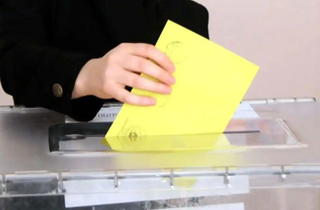The ruling conservative Croatian Democratic Union (HDZ), led by Prime Minister Andrej Plenkovic, is pitted against an alliance of centrist and left-wing parties informally led by populist President Zoran Milanovic and his Social Democratic Party (SDP).
The election comes as Croatia grapples with the highest inflation rate in the eurozone, a labor shortage, illegal migration, and reports of widespread corruption.
The race for Croatia’s 151-seat parliament will not only determine the country's future domestic policies but also the EU’s unity as it deals with instability from Russia’s invasion of Ukraine.
If the HDZ retains power, the country would continue a pro-Western course in supporting Ukraine in its fight against Russia. A victory for the SDP could shake the HDZ’s long dominance of politics and potentially open space for stronger pro-Russian influence in the country, akin to Hungary and Slovakia.
Most pre-election polls predicted a HDZ victory, but without enough seats to rule alone. The left-wing opposition may benefit from discontent with the country’s high inflation and the general economic malaise in most EU member states. Smaller parties on the right and the left could be key to both the HDZ and SDP in their quest for power.
The HDZ has largely held power since Croatia gained independence from the former Yugoslavia in 1991. The Balkan nation became the newest member of the European Union in 2013, and joined Europe’s passport-free travel area and the eurozone last year.
The election has played out as the final episode in the long-running rivalry between Plenkovic and Milanovic. After Milanovic scheduled the election and announced his surprise bid for prime minister, he began campaigning on behalf of the SDP. However, Croatia’s constitutional court judges stepped in, saying the move was unconstitutional.
Despite the court's ruling, Milanovic refused to resign and continued to campaign in favor of the left-wing alliance. He accused Plenkovic and the HDZ of rampant corruption and “massive theft” of state funds, referring to past and present scandals, some of which had ended up in the courts.
Plenkovic, who has led the government since 2016, repeatedly denied the accusations, saying Milanovic as the prime minister would shift the country away from the EU and closer to Russia.
The election outcome will be closely watched both domestically and internationally, with polls closing on Wednesday evening and official results expected on Thursday. (ILKHA)



 Güncel
Güncel
 Güncel
Güncel
 Eğitim
Eğitim
 Dünya
Dünya
 Güncel
Güncel
 Dünya
Dünya
 Güncel
Güncel
 Güncel
Güncel
 Güncel
Güncel
 Dünya
Dünya





